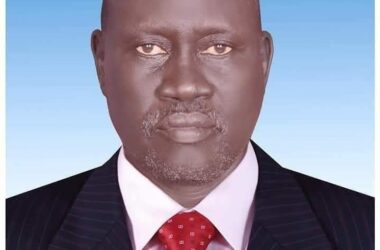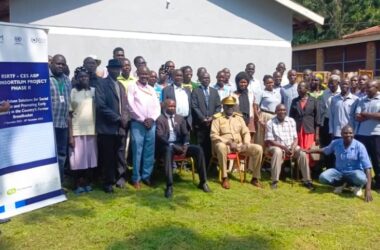By Akol Madut Ngong
The National Ministry of health in partnership with health agencies on Monday 25th April, 2022 joined the world to commemorate the World Malaria Day at Nyakuron Cultural Centre under the Global theme: “Advance. Equity. Building. Resilience. End. Malaria” in conjunction with local theme: Together, Let’s End Malaria in South Sudan.” “Sleep Under Long Lasting Insecticide Treated Mosquito Net Every Night”.
Addressing the audience, the national minister of health Yolanda Awel Deng on Monday said sleeping under a treated mosquito net is one of the simplest ways and it’s an economically sufficient way for every citizen of South Sudan to implement.
“The Ministry of Health with the help from the partners has treated malaria and we are strongly encouraging the families to sleep under treated mosquito nets to prevent the spread of malaria in the country,” Awel said.
She cautioned the public also to be very careful when buying malaria drugs because not all that are sold in the market are the authentic ones.
Awel added that malaria is a disease that is killing people as in every two to three minutes somebody is dying of malaria especially children under five years of age.
The WHO Country Representative Dr. Fabian Ndenzako said every year, World Malaria Day is an occasion to renew collection commitment and encourage continuous investment in malaria prevention and control.
“Malaria is a significant public health and the development challenges globally and also in South Sudan,” Dr Fabian added.
“Last year about 95% of the estimated two hundred and twenty eight million cases occurred in Africa with over six hundred thousand cases reported of malaria deaths, and malaria is one of the causes of poverty. In Africa, an estimate of two billion USD annually is spent,” he stated.
Dr. Fabian said that malaria in the country is causing high morbidity in mortality according to data from the ministry of health where sixty to seventy percent of all health cases are malaria.
“Now we have malaria vaccine, the vaccine is an additional tool for intervention that we already have. This vaccine will be used to prevent malaria particularly among children from six months to five years who live in moderate to high transmission setting including South Sudan,” he explained.
However, Dr. Fabian added that the community needs to help them fight malaria because it affects them and he cites how they need to listen and learn from these communities who have been affected by malaria.
“We need to take the task of ending malaria in South Sudan by ensuring that we strengthen malaria surveillance, strengthening the community champions and activities within the communities to fight against this disease,” Dr. Fabian said.



